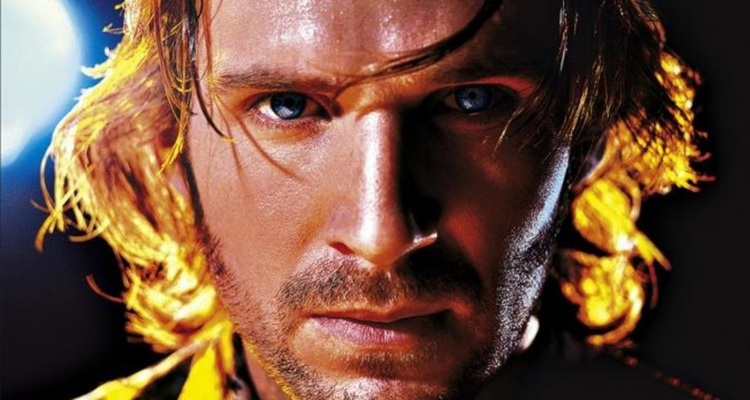|
While many people can reel off a list of their favourite Christmas movies, far fewer would be able to think of even one film they love set at New Year. It makes sense, because while Christmas is a time for staying in with movies, New Year is normally a time for going out and making dubious choices under the influence of alcohol. Clearly, these are not normal times and so I made the safe and eminently sensible choice to stay in and watch Strange Days, which is that rare thing - a notable New Year movie.
Directed by Kathryn Bigelow and released in October 1995, Strange Days is a science fiction thriller set at that most unique New Year - during the last two days of 1999, leading up to the dawn of the new millennium. While it received some good reviews, the film was a catastrophic flop on release and made just $8 million in the US against a $42 million budget, which probably knocked Bigelow off the studio’s Christmas card list. For this reason, combined with the difficulty in seeing the film until recently, Strange Days has languished in relative obscurity, a footnote to the director’s now much more successful career. However, a small cult following regards it as a minor classic - and they’re right.
Strange Days is set in Los Angeles at the close of 1999, by which time the city has become even more riven by brutal police violence, racism, and urban decay. Lenny Nero, played by Ralph Fiennes, is a lowlife hustler ideally adapted to this moment in history. An ex-vice cop, Nero deals in black market discs containing digital recordings of another person’s sensory experiences. This technology, called SQUID, is almost directly lifted from William Gibson’s novel Neuromancer (1984) but in the film, is amusingly based on the forgotten medium of the MiniDisc. While Nero refuses to deal in snuff, he is otherwise a prolific peddler of sleaze and forbidden desires recorded by others using SQUID rigs. While he knows his business, he can only back up his claims of celebrity customers by referring to a TV weather girl.
Nero himself is a habitual user of SQUID “clips”, primarily the ones featuring his punk singer ex Faith, played by Juliette Lewis as a kind of Courtney Love pastiche. The other woman in his life is Lornette “Mace” Mason, a limo driver and trained combat specialist played by Angela Bassett. In a movie which has an excellent cast, Bassett puts in by far and away the best performance. Mace is the real hero of the story, a literally and figuratively muscular presence and arguably one of the best female characters in a ‘90s sci-fi movie. A love triangle of sorts exists between these three characters, as Nero continues to pine after Faith, who no longer loves him, and Mace’s love for Nero also goes unrequited. While this love triangle gives Strange Days much stronger emotional resonance than many sci-fi films, there is a lot more going on. Nero finds himself pursuing a depraved killer who is as hooked on “playback” as he is, and as the end of the millennium approaches the city is a powder keg primed to explode into violence. One thing which makes the film unusual is that while it is a cyberpunk story, it declines to indulge the standard, predictable plot elements of that genre. Sinister corporations and body modification, for example, don’t feature at all and the film is more concerned with problems which were relevant in 1995, and continue to be so now. The SQUID technology isn’t the be-all and end-all of the movie, but serves more as an experimental means of exploring topics as varied as obsession with the past, police brutality, desire, voyeurism, and exploitation. When the New Year celebration in Strange Days arrives, right at the ending of the movie, its outlook can seem overly optimistic, even naive. While the film is often dark in tone - as you would expect from cyberpunk - it also indulges a familiar, comforting trope. This is an idea which many films hinge on, which is that if the truth comes out, it will necessarily result in justice and to society’s villains being humbled and brought low. This was a dubious device in 1995, and seems disturbingly quaint today, given the events of recent years. The truth, we have learned, is a poor weapon against those who wield vast power. The systems of accountability we once believed in simply don’t work, and the reliance on them in Strange Days doesn’t, either. With this being said, there’s no doubting the ongoing and increased relevance of Strange Days. Its failure in 1995 was perhaps inevitable, as the film was a hard sell to mainstream audiences at that time. Today, it is more relevant than ever as we confront a culture where people document everything, constantly aspire to relive the past, and live vicariously through others - and where the evils of racism and unaccountable power are as present as ever. It may not make for particularly uplifting New Year viewing, but Strange Days is as in tune with the present as a 25 year old movie can be.
0 Comments
Your comment will be posted after it is approved.
Leave a Reply. |
About
Exploring classic science fiction, with a focus on the 1950s to the 1990s. Also contributing to Entertainium, where I regularly review new games. Categories
All
|

